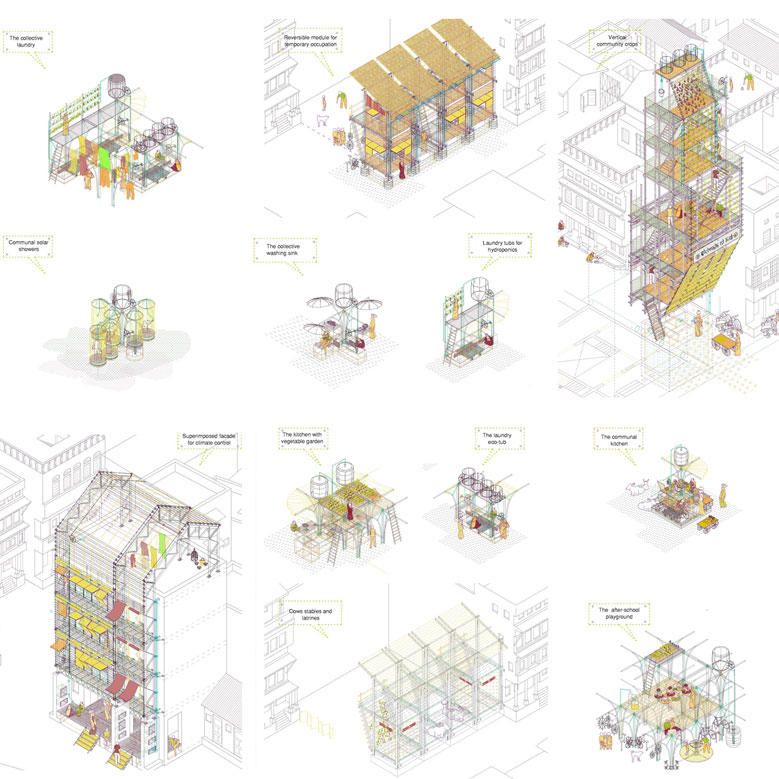Regeneration strategies in the pols of Ahmedabad.
Final Year Project. 2012
Author: Almudena Cano
Tutor: Luis Basabe Montalvo
Mark: Distinction
From the studio we want highlight the quality of work of our partner Almudena Cano, in which she developedexcellently a regeneration strategy for the historicical centre of Ahmedabad (India) for her Final Year Project at the Escuela Técnica Superior de Arquitectura de Madrid. Here is a description of the project, as a fragment of her exhibition at various universities, and which has received numerous international awards.
An investigation into participatory construction of the habitat, which she wants to restore the identity of public space as a place of everyday encounters and social interaction. She seeks to introduce ctizien-empowering tools throw technological transferences, and the study of the local “know-how”.
The draft proposes a METHODOLGY OF ACTION facing the global problem of interverntions to improve the HISTORICAL CENTRES of the large cities, which,subject to considerable economical, political and social pressures, are dilapidated and incapable of addressing the rapid processes of development without losing their validity as a traditional fabric.
Faced with invasive interventions that neglect or ignore what already exists, it is proposed a STRATEGY OF REGENERATION of the neighbourhoods public space, which solves the lack of infraestructure (water network, sewage system etc.) and at the same time will give continuity to traditional programmes and the way of life in the area. a RESTORATION SERVICE NETWORK designed to equip the communal spaces of the neighbourhood, which supports sustainability and commits to the surrounding, taking advantage of the resources in the area and uses local techniques for the construction.
A flexible and ADAPTIVE SYSTEM that extends beyond the limits of the Indian cotext is applicable to other areas of a similar urban complexity. In a fabric undergoing a constant process of development and evolution, any improvement intervention should focus on the natural, social and cultural, economical, technological, individual and collective resources.






